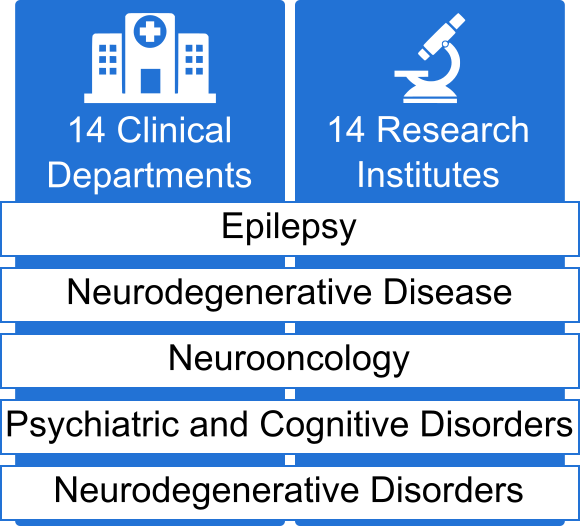One key driver of neuroscience research in Bonn is to leverage a deep understanding of cellular brain function to better understand common neuropsychiatric disorders. Through studies in animal models, human cell systems and patients, we are aiming at understanding symptoms of these diseases, their symptoms and therapies at the elementary level. To enable this transfer, Bonn basic neurosciences are closely interlinked with clincal and translational units via Integrated Research and Treatment Centers (IRTCs) focused on specific disease entities.
